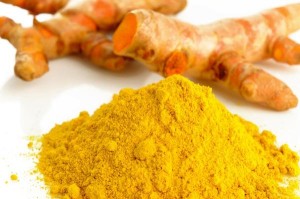 While the CDC and other governmental agencies push the human papillomavirus (HPV) vaccine in an attempt to curb future cervical cancer rates, a powerful natural option is readily available and free of dangerous side-effects — in other words, diet. From a low glycemic index eating plan to raspberries and turmeric, food is a potent, cost-friendly and effective defense against cervical cancer. Below are four dietary habits to adopt that help ensure a healthy future.
While the CDC and other governmental agencies push the human papillomavirus (HPV) vaccine in an attempt to curb future cervical cancer rates, a powerful natural option is readily available and free of dangerous side-effects — in other words, diet. From a low glycemic index eating plan to raspberries and turmeric, food is a potent, cost-friendly and effective defense against cervical cancer. Below are four dietary habits to adopt that help ensure a healthy future.
Food-based solutions
Choosing low glycemic index foods is one of the best ways to avoid cancer, including those of the cervix. Time and again, researchers have found that consuming easily digested, high glycemic index foods like sugar, refined carbohydrates and potatoes, substantially raises insulin levels and insulin growth factor (IGF) — two hormones that increase tumor growth and progression. Focusing on foods that digest slowly (non-starchy vegetables and fruit, legumes and whole-grains) will keep blood glucose stable and insulin levels within healthy range.
Avoiding excess protein is another dietary practice that reduces the risk of cancer. Since the turn of the century, researchers have recognized one of the body’s main defense against the proliferation of malignant cells is pancreatin — a combination of protein digesting enzymes made by the pancreas. When an overabundance of protein is consumed, these enzymes are diverted from their important task of keeping cancerous cells in check. For optimum protection, it’s recommended that at least 12 hours each day should be protein-free.
Additionally, ellagic acid has been shown to induce cervical carcinoma cell death (apoptosis) within 72 hours, according to research published in Cancer Letters:
“We found that ellagic acid at a concentration of 105 M induced G1 arrest within 48 h, inhibited overall cell growth and induced apoptosis in CaSki [cervical carcinoma] cells after 72 h of treatment. Activation of the cdk inhibitory protein p21 by ellagic acid suggests a role for ellagic acid in cell cycle regulation of cancer cells.”
Abundant in fruits and nuts like raspberries, strawberries, pomegranates, blackberries, pecans and walnuts, this cancer-destroying compound is easy to enjoy on a daily basis.
Curcumin, the bioactive component in turmeric, is also effective in fortifying against – as well as healing – cervical cancer. A study in Molecular Cellular Biochemistry discovered that curcumin extract counteracts proliferation and encourages apoptosis in HPV-positive cells. The team adds, “[curcumin] is a natural compound extracted from Curcuma longa that allows suppression and retardation of carcinogenesis in many types of cancer and is currently being tested in various human clinical trials as it has been found to be well tolerated at higher doses with a relatively well established safety profile.”
Written by Carolanne Wright and published by Natural News, June 2, 2014.
FAIR USE NOTICE: This site contains copyrighted material the use of which has not always been specifically authorized by the copyright owner. We are making such material available in our efforts to advance understanding of environmental, political, human rights, economic, democracy, scientific, and social justice issues, etc. We believe this constitutes a ‘fair use’ of any such copyrighted material as provided for in section 107 of the US Copyright Law. In accordance with Title 17 U. S. C. Section 107, the material on this site is distributed without profit to those who have expressed a prior interest in receiving the included information for research and educational purposes. For more information go to: http://www. law. cornell. edu/uscode/17/107. shtml“
